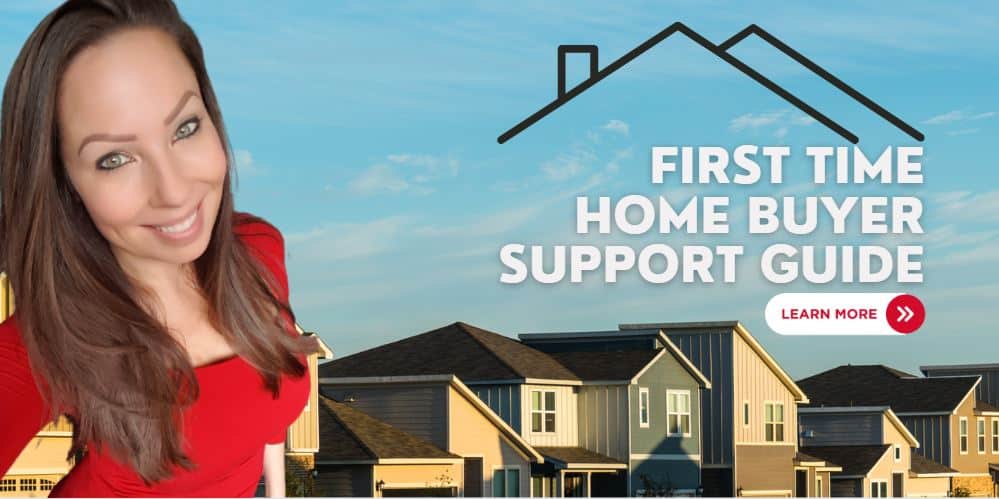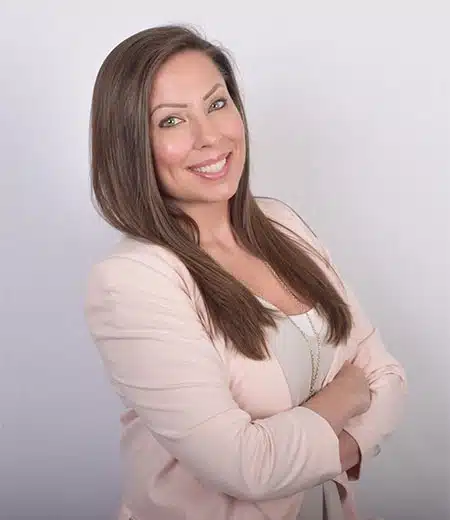
As a first time home buyer, purchasing your first property is an exciting milestone, but it can also be an overwhelming process. There are many steps involved, from getting your finances in order to finding the “perfect” property. In this article, we’ll explore what a first time homebuyer should do to prepare for their first purchase and how a REALTOR® can help support you along the way.
Before you do ANYTHING, it’s important to get your finances in order. So naturally, step one comes down to budget.
YOUR BUDGET AS A FIRST TIME HOME BUYER
Before you start looking at properties, it’s important to determine your budget. This will help you narrow down your search and avoid falling in love with a property that is out of your price range. As a first time home buyer, more than likely, the property you purchase won’t be your forever home. Keep in mind what your non-negotiables are and what you’re willing to be flexible.
You want to find a home you’re relatively happy with, in the area you want, but within your budget. Consider your income, expenses, and debt to determine how much you can afford to spend on a property. It is imperative that you get pre-approved for a mortgage to know exactly how much you can borrow. This will dictate the type of home to look for as well as the location.
YOUR DOWN PAYMENT AS A FIRST TIME HOME BUYER
Ideally, most lenders want to see a down payment of 20% of the purchase price BUT there are some lenders who will work with you with less, such as 5 or 10%. Keep in mind, if you have less than 20% down, you will require a CMHC insured mortgage, which protects the lender in the instance of a default.
Given today’s housing prices, saving up 20% of the purchase price of a home that could be in the range of $800,000-$1,000,000 is no easy feat. For this reason, you may want to entertain putting less money down, but less money down also means a higher mortgage payment. It’s super important to work with the bank or your mortgage broker to understand what payments will look like in various scenarios to ensure you can afford it. Owning a home is expensive and that doesn’t just start/stop with the mortgage. You also have to budget for taxes, utilities, and unforeseen repairs/maintenance.
The cost of real estate has gone up significantly over the past 10-15 years so if you feel like saving up, based on your current situation, is not going to get you where you want to be quickly enough, you can also consider buying an investment property in a less expensive market then using the proceeds to build up your down payment. Then in a few years, you can also refinance that property and use some of that additional equity to add to your down payment in your local market. This is just one strategy you can consider, but there are many others as well.
If you’re not ready to be a first time home buyer, it’s never too early to start saving. It’s a good idea to work on saving for your down payment as soon as possible. You can also and consider using a high-interest savings account to maximize your savings.
WORKING WITH A REALTOR®
As a first time home buyer, working with a REALTOR® is an important part of the process when you’re ready to take the next step. Your REALTOR® will help you navigate the buying process and can provide valuable insights on the local market. You may also find it beneficial to find a REALTOR® who has experience working with first time home buyers. Even if you find one who doesn’t, consider their experience as a whole and how comfortable you feel working with them. Buying a home is an incredibly personal process, so you want to work with a REALTOR® you like and trust to get the job done for you.
RESEARCHING NEIGHBOURHOODS
As a first time home buyer, you may not be aware of all of the neighbourhoods that work for your lifestyle and your price point. Identifying a location that is where you want to be, and works within your budget, is not always easy. In fact, as a first time home buyer, you may need to consider living somewhere that is a little further than you’d prefer to be if you can’t find something in your budget.
When it comes to neighbourhoods however, this is an important step in the home buying process. Look for neighborhoods that fit your lifestyle and budget, and consider factors such as schools, commute times/options, and local amenities. It’s also a good idea to visit neighborhoods in person to get a feel for the area. You may also want to do a driveby during the day and at night, in case there are any differences.
GO TO LOTS OF OPEN HOUSES
As a first time home buyer, checking out open houses is a great way to give you a better sense of what you’re looking for in a property. This can help you understand what is available in your price range and in your preferred neighborhoods. Take notes and photos of properties you like to help you compare them later on.
PUTTING IN OFFERS ON PROPERTIES
As a first time home buyer in a hot market, you can expect to see plenty of offer presentation nights and for things to move very quickly. When I bought my first home, I saw about 20-25 properties in a week, put in an offer and it was accepted. Given the lack of supply in the Greater Toronto Area, over the past 6-7 years, now it’s far more common for a seller and their REALTOR® to host an offer presentation night about 1 week after the home has gone on the market. This gives the seller the opportunity to evaluate all of the offers, which in many instances, can result in the price of the home going up and up. Sometimes, sellers may also consider pre-emptive “bully” offers, during which time, a prospective buyer will submit an attractive offer in advance of the offer presentation with the hopes of landing the home without competing.
ONCE YOUR OFFER IS ACCEPTED
In a perfect world, buyers would always include a couple of conditions to protect themselves. The most common are for financing and for a home inspection. Buying a home is expensive, so the last thing you’d want is to buy something and a big ticket items fails or you discover a costly surprise. I have a friend who bought an older bungalow in Pickering, and discovered after taking possession that there was no insulation in some of the walls. They were gutting the entire home, but this discovery led to a big increase in the budget.
Now, with this being said, if you’re a first time home buyer in a hot market, you may need to decide if you should include these conditions, or not, in the interest of strengthening your offer. You can bring an inspector to a home to inspect it before the offer presentation night so you can waive this condition. When it comes to financing, if you have a pre-approval in hand, you may feel confident to waive that inspection as well. Anything you can do in advance to help strengthen your offer later is a good idea.
PREPARING TO CLOSE
As a first time home buyer, it’s important to know that after your offer on a property is accepted, there are some things you should and shouldn’t do.
DO’s
Closing costs can add up quickly, so it’s important to understand what they are and how much you can expect to pay. Closing costs can include things like legal fees, title insurance, and land transfer taxes. Your REALTOR® can provide you with an estimate of how much you can expect to pay in closing costs.
Unexpected expenses can arise during the home buying process, so it’s important to be prepared. Set aside some extra money in your budget to cover unexpected expenses such as appraisal fees, moving expenses, and repairs.
DON’T
Under no circumstances should you do anything that will impact your credit! Don’t go out and start furniture shopping or buy a new car. This can compromise your closing if the lender sees a change to your credit.
In conclusion, being a first time home buyer can be exciting and rewarding. However, it’s important to be prepared and to understand the steps involved in the process. By determining your budget, saving for a down payment, working with a REALTOR®, researching neighborhoods, attending open houses, getting a home inspection, understanding closing costs, and being prepared for unexpected expenses, you can set yourself up for a successful home buying experience.
Thinking about making a move and buying your first home? Let’s chat! I can be reached at 647.896.6584, by email at info@serenaholmesrealtor.com or by filling out this simple contact form.
To learn more about first time home buyer programs available, click here.
For plenty of other great tips, make sure we’re connected on social @serenaholmesrealtor and you’ve subscribed to my YouTube channel.










